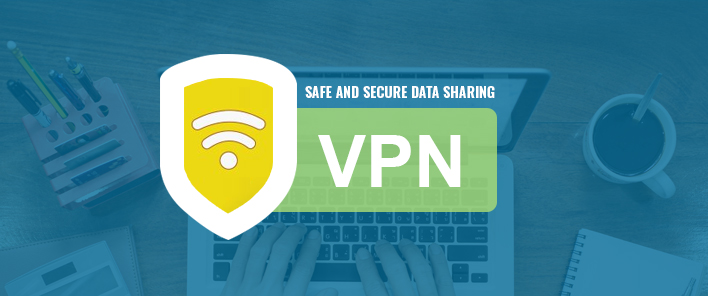Data has become an indispensable part of all businesses. Small businesses of any industry type to rely heavily on data and data analytics these days. The storage and sharing of information that is sensitive to business is therefore an integral part of all business operations plans. Regional and local regulatory laws aside, this is a basic feature that even a marginally tech-savvy customer looks for these days.
In earlier days, the only way to protect data was to ensure only a limited number of people had access to it. Else, the data had to be stored in such a place where it becomes physically impossible for foreign, potentially forces like malware and spyware to contravene. Data centers used to be heavily protected both physically and virtually. Small business owners who used the services of such data centers had to spend obscene amounts on such vital things. The introduction of VPNs and cloud computing is akin to evolution of mankind from Neanderthals to human beings. It’s a massive step forward that makes data storage and sharing for SMBs worldwide more accessible and cost-effective as well.
How VPN Works
Virtual Private Networks or VPNs are a safe conduit for data traveling to and from your device. It is like a shield within which all data is secure and encrypted. This is much more effective than using the incognito mode while accessing the internet. It is a huge bonus for CRMs and data-sensitive applications used by employees of a business.
When you use a VPN, your device first gets hooked up to a server that is the ‘hub’ of the network. The network is responsible for gather and transmitting data from your device in a secure manner by adding an extra layer of protection – data encryption. The network server can be in any part of the world- people or tracking applications will never know where a person is actually located as all they’ll get is the VPN location.
Benefits of VPN
1. SMBs personnel can access business information or carry out day-to-day activities even when they have to travel to remote parts of the world where internet connectivity may not be secure. This means your business can function 24/7 if necessary, and in a thoroughly secure manner.
2. Data protection is of utmost importance these days. With VPNs, when data is exchanged between your devices and other devices, internet service providers (ISPs), or networks, they are scrambled (encrypted). So even if people try to access the data, all they would get is a bunch of gibberish. That would take plenty of time and resources to unscramble (decrypt). This includes login credentials, instant messages, and all forms of data required to access and used online.
3. If your organization is keen on securing business from larger corporations, the first thing they would look for is how secure is the data they share with your employees. Contracted or outsourced employees at times need access to sensitive data. VPNs are a way of putting heavy restrictions on how the data gets accessed and stored. It is also an effective monitoring tool. You can know precisely who accessed what data as all activities get tracked in VPNs.
4. VPNs are a great way to bypass the security flaws that are rampant in public internet networks. Core business activities are usually not performed using public or shared internet services. But in case of emergencies, VPNs act as a cloak for your business data even when accessed over a public network.
5. Once a user is plugged into the VPN, it consumes normal, sometimes even lesser internet bandwidth than usual. So with heightened security also comes the benefit of being able to operate smoothly online.
How small business can benefit
With point-to-point, direct connectivity with data stored locally in any part of the world, SMBs have access to more data in a secure manner. Some of the privileges enjoyed by SMBs with VPNs are:
a. Cost-effective way of ensuring data remains safe.
b. A one-time investment that lasts for a very long time with minimal maintenance and upgrades required periodically
c. Ability to interest even the most security-conscious clients
d. Remote access for employees, whether they have to travel or work-from-home. The current pandemic situation only underlines the need of ensuring all businesses be able to continue operations even without being physically present at the workplace
e. Affordability because of the well-established acceptance of VPNs as a security measure,
Issues without VPN
Lack of VPN can lead to:
a. Increase in sensitive data getting leaked or stolen
b. Higher risks of hackers being able to get into the business servers and plant spyware or malware, which can be a big blow from a competitor
c. Inability to be able to work from remote locations
Bandito VPN
Bandito is a great example of a VPN provided and supported by a company called XS Usenet. They offer services like customer footprint data retention, protection against ID theft, and tracking services in addition to the best in data security measures.

